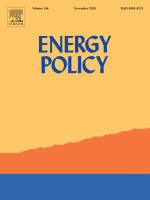Reactor ageing and phase-out policies: global and regional prospects for nuclear power generation

29.09.2020
Nuclear Power generation, Climate change mitigation, Integrated assessment models
Energy Policy, Volume 147, December 2020, 111834
Reactor ageing and phase-out policies: global and regional prospects for nuclear power generation
Nuclear is considered as a valuable option for the decarbonization of power generation, as it is a no-carbon, yet commercially consolidated technology. However, its real prospects are uncertain, especially in the OECD countries. The main aim of this work is to explore the techno-economic implications of policy-relevant scenarios for nuclear power, designed on the actual prospects in the world regions and developed with the Integrated Assessment Model WITCH. The analysis shows that nuclear generation constantly grows over the century, even if in general the nuclear share in the global electricity mix does not significantly change over time. If constraints are applied to nuclear deployment, the contribution of this technology is compensated by renewables (mainly wind and solar PV) and, to a lower extent, by CCS. The policy costs related to nuclear phase-out are moderate, as they are almost completely compensated by innovation and technology benefits in renewables and energy efficiency. Phase-out policies applied only to the OECD regions do not entail any additional policy costs in these regions, while non-OECD regions marginally benefit from lower uranium prices.
Nuclear is considered as a valuable option for the decarbonization of power generation, as it is a no-carbon, yet commercially consolidated technology. However, its real prospects are uncertain, especially in the OECD countries. The main aim of this work is to explore the techno-economic implications of policy-relevant scenarios for nuclear power, designed on the actual prospects in the world regions and developed with the Integrated Assessment Model WITCH. The analysis shows that nuclear generation constantly grows over the century, even if in general the nuclear share in the global electricity mix does not significantly change over time. If constraints are applied to nuclear deployment, the contribution of this technology is compensated by renewables (mainly wind and solar PV) and, to a lower extent, by CCS. The policy costs related to nuclear phase-out are moderate, as they are almost completely compensated by innovation and technology benefits in renewables and energy efficiency. Phase-out policies applied only to the OECD regions do not entail any additional policy costs in these regions, while non-OECD regions marginally benefit from lower uranium prices.
